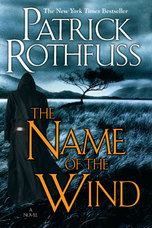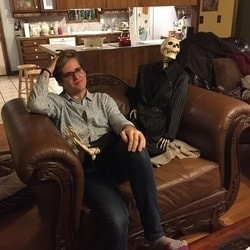Sacred Chickens
Menu
SACRED CHICKENS
 What do you do when you read? This is the question that one of my professors posed this semester. It seems simple enough, but it’s hard to answer because, in my experience at least, reading is not a conscious act. For most, it’s a process that we learned as children, but it’s not innate like language. As I was finishing this book, that question was on my mind. For me, as I would assume is the case for most people you create a mental image in your mind, immersing yourself in a completely different world. The words and phrases come to life through your imagination. This makes reading a singularly unique process. Also, for most of human history, those who were privileged enough to learn to read and write were obviously more educated than those who couldn’t. So, reading is a form of education, and education equals a form of power. Therefore, education and literature is important, because the ability to think critically is vital. Sometimes when readers get so immersed in a world with the scope and breadth of an epic, it can be difficult to pinpoint and put into words exactly what you love about it. That’s sort of what I’ve been experiencing with this book, which at seven hundred plus pages makes for a hearty feast for any lover of fantasy. It centers around the heroic and tragic tale of Kvothe, a legendary figure who is now in hiding as an innkeeper. After some goading, he begins to tell his story to a character known as Chronicler, who promises to tell his story honestly. Let me begin by talking about the writing, which is fantastic. There is never a frivolous word or phrase throughout; it all contributes to the plot. I think that is partly why it’s so compulsively readable, because everything is meticulously planned. The reading experience is like watching puzzle pieces fall together. The main character, Kvothe, while not entirely unique, is very well done. He’s the classic hero that has been seen in other trilogies, portrayed as a genius among his classmates, a prodigy. But like many brilliant minds, his Achilles heel is hubris; however, even when his plans to go awry, he manages to talk his way out of trouble. There are a few instances when I found his resourcefulness to be unrealistic, but this novel is one of High Fantasy, and in the end, there weren’t enough of these to make me dislike the character. The character and story arcs are what really make this novel great. I want to know more about every single character who appears here, because they were written so well. I don’t really feel like any of them are stereotypical background characters. The author them each a distinctive personality, and I would love to know more about all of them. I would like to refer back to the opening paragraph now. Kvothe, before he goes to the University, spends some time living in the streets in the streets of a prominent city. While there, his most valuable possession is a book that his mentor gave him when he was a child. He cherished it, and while he could have easily pawned it or used it as kindling during the winter, he didn’t for a couple of reasons. One, because he’s a lover of literature, and that would have horrified both him and me. But more importantly, the book and his teacher are what started his education. He cherishes both the connection to his mentor and the knowledge the book holds. Many people in around him do not even have the ability to read and write, so by keeping the book he reminds himself that his situation is only temporary. The Chandrian are one of the main antagonists in the book. They are mythical creatures that are not supposed to exist outside of bedtime stories. But, through a painful experience, Kvothe discovers that they are all too real. When I first read this, I thought I recognized the name or something. Then I realized that they heavily resemble the Chimes, which appear throughout the Sword of Truth series. The Chimes, like the Chandrian, are powerful and ancient elemental agents of destruction that must be destroyed. However, that is as far as the similarities go. I can truly say that I loved this book, and I’m looking forward to picking up the next installment. I loved the way this was constructed and how well written it was. What few issues I found did nothing to deter me from the plot. I would highly recommend it to anyone I know.  Jarad attends Middle Tennessee State University, loves tea, and tries to spend every spare second reading. Jarad is majoring in English. Bless his heart! Let's all light a candle for him and send him happy thoughts!
1 Comment
Terry Rich
9/12/2017 11:05:22 am
Love this book & the 1st sequel, "The Wise Man's Fear" & a side book he wrote about the character, Auri living in the Underthing. All 3 great books!
Reply
Leave a Reply. |

Click Photo above to buy ebook or paperback from Amazon.
Here's the link to Barnes and Noble Or order through your favorite independent bookstore! Categories
All
|
 RSS Feed
RSS Feed